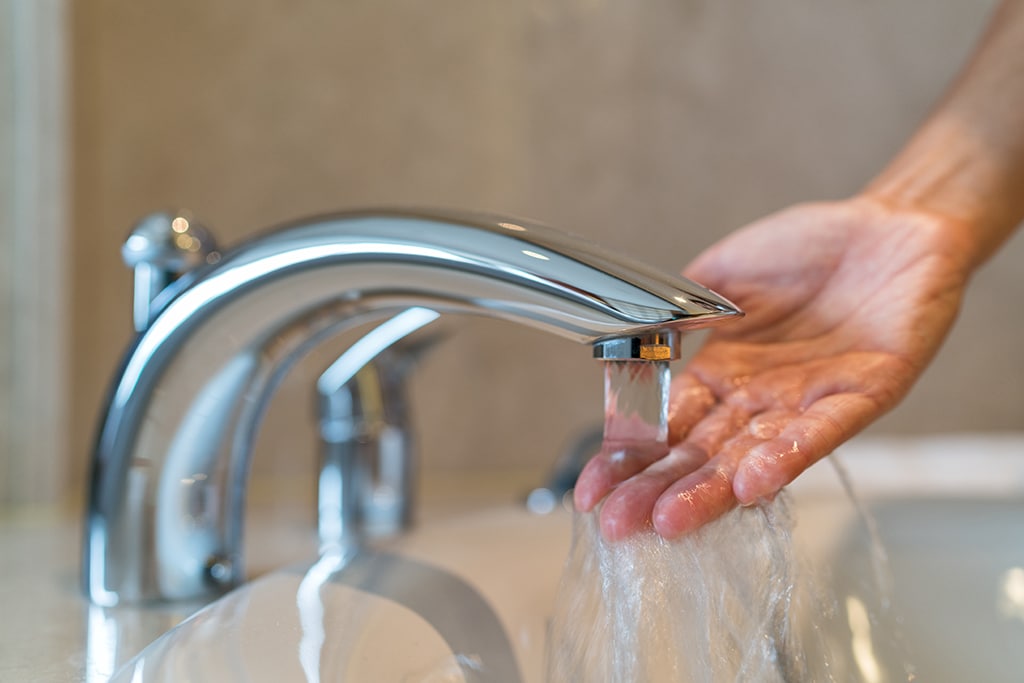
Reasons Your Water Heater Might Need Repair | Conway, SC
Photo By Maridav at Shutterstock
Few things are more exasperating than expecting to step into a steamy hot shower, only to be met with a blast of frigid or lukewarm water. Don’t let a faulty hot water heater put a damper on your plans; instead, contact a Conway, SC plumber to determine the exact issue with your hot water heater. Here are a few common reasons your hot water heater isn’t properly producing hot water. Fortunately, most of these issues are easily remedied with an appointment for water heater repair.
1. Your Hot Water Heater’s Set Temperature Is Too Low
For your hot water heater to operate efficiently, it needs to be set at an appropriate temperature. Your hot water heater should be set a minimum of 120 degrees Fahrenheit to prevent the growth of bacteria in your water supply and to provide your household with ample hot water. The max temperature for your hot water heater shouldn’t exceed 140 degrees Fahrenheit. Otherwise, you’ll be using extra energy to heat hot water that your household likely doesn’t need. Your family members will also be at risk of getting scalded if your home’s water is too hot.
If Conway, SC has a cold snap, it’s possible that the 120-degree setting isn’t hot enough, especially if your home’s insulation is lacking. Try bumping your hot water heater’s thermostat up a few degrees (while staying under the 140-degree maximum) and wait a couple hours to see if this remedies your problem. Should your water remain cold, it’s time to move onto other water heater repair solutions.
2. There’s Sediment Build Up in Your Hot Water Tank
Many Conway, SC homeowners don’t know that they need to flush their hot water heaters once a year. When water from your city’s water supply enters your hot water heater, it brings with it small amounts of minerals, sand, dirt, and other types of sediment. This sediment gathers at the bottom of your hot water heater’s tank.
In many hot water heaters, the heating element is also located at the bottom of the tank. Over time, all this sediment builds up and impacts the ability of the heating element to produce hot water. Other signs that your hot water heater has sediment build-up are fluctuating water temperatures, rumbling sounds from your unit, and increased power bills.
Water heater repair for excessive sediment build-up involves flushing the hot water heater to remove the sediment build-up. During this water heater repair task, your plumber will shut off power to the water heater and drain any water from the tank. The plumber then fills and refills the unit with fresh water until the water comes out clear and sediment-free. How long this process takes will depend on the amount of sediment build-up in your hot water heater.
To prevent this problem from reoccurring and to keep your hot water heater in top-notch shape, schedule an annual flushing session with a Conway, SC plumber. This regular water heater repair maintenance will help your hot water heater produce hot water as quickly as possible. It will also prolong the lifespan of your unit. The harder your hot water heater has to work to heat your water, the shorter it’s useful lifespan.
3. Your Hot Water Heater Doesn’t Have Adequate Power
Sometimes, your unit itself doesn’t require water heater repair to restore your home’s hot water. If your hot water heater doesn’t have a reliable power source, it won’t have the energy that it needs to produce hot water. The recommended hot water repair task for this problem depends on the power source for your hot water heater.
If you have an electrical hot water heater, the first thing you should do is check your circuit breaker and make sure that the breaker hasn’t tripped. A tripped breaker may not be entirely in the “off” position. However, if it isn’t securely in the “on” position, you should try resetting the breaker to see if this is the cause of your hot water heater woes.
There are a couple of items to inspect if you have a gas-powered hot water heater before calling a plumber for water heater repair. Begin by checking that the pilot light for your hot water heater is lit. If the pilot light is out, relighting it should restore hot water. Note that some newer gas-powered water heaters don’t have pilot lights. The manufacturer’s manual for your water heater should tell you if your unit has a pilot light, and if so, how to relight it.
It’s possible that the gas lines that lead to your hot water heater have a leak. If you smell gas or if your water heater repair professional doesn’t locate an issue with your unit, you should turn off your gas supply and have these lines inspected as soon as possible.
4. The Heating System for Your Hot Water Heater Isn’t Working
The heating system for your hot water heater consists of multiple components that work together to heat and produce your home’s hot water. A heating element, thermostat, and thermal switch must all operate correctly for your unit to make hot water. If one element stops working, your unit will need water heater repair to restore its ability to produce hot water.
Over time, the elements in your hot water heater may wear out due to ordinary wear and tear. Neglecting to complete regular water heater repair maintenance tasks will hasten the length of time these elements last. A Conway, SC plumber can examine your unit to determine which component is faulty. Depending on the age of your unit, it might be better financially to replace the unit instead of trying to repair it. Most hot water heaters have a lifespan of 10 years, and if they haven’t received proper maintenance, this lifespan is even shorter.
Concerned that your hot water heater isn’t functioning properly? Contact Benjamin Franklin Plumbing today for a thorough inspection.

 843.213.6611
843.213.6611